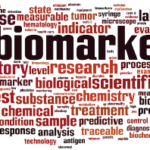NEW YORK (Reuters Health)—Anti-citrullinated protein antibodies (ACPA), particularly high anti-CCP2 titers, can diagnose rheumatoid arthritis (RA) in the general population with a high degree of accuracy, a Swedish study suggests.
ACPA are highly specific for RA, but until now the diagnostic accuracy of ACPA in the general population has not been “thoroughly assessed,” note Dr. Aase Haj Hensvold of the Karolinska Institutet, Stockholm, and colleagues in their April 28 Annals of the Rheumatic Diseases online report.
They assessed the diagnostic accuracy of ACPA for RA in 12,590 population-representative Swedish twins. They analyzed serum samples for the presence of ACPA using anti-CCP2 enzyme-linked immunosorbent assay (ELISA) and all ACPA-positive samples were further tested on ELISAs for four peptide-specific ACPA. They identified patients with RA in the Swedish National Patient Register at inclusion and after a median of 37 months.
They report that 350 of all 12,590 individuals (2.8%) had a positive anti-CCP2 test, measuring ACPA, and 103 of these individuals (29.4%) had an RA diagnosis at the time of blood donation and inclusion. During follow-up, an additional 21 of the remaining 247 ACPA-positive individuals (8.5%) developed RA.
“Overall, a positive anti-CCP2 test had a positive predictive value of 29% for prevalent RA at inclusion (negative predictive value of 99.6%),” the investigators report. High titers of anti-CCP2 (>3 times cut-off) increased the positive predictive value to 48% (negative predictive value of 99.5%), they note.
“ACPA-positive individuals without RA had lower anti-CCP2 titers and fewer peptide-specific ACPA than ACPA-positive patients with RA and higher C reactive protein levels than ACPA-negative individuals without RA,” they further report.
The investigators also note that, with more than 12,000 individuals in the study, it’s so far the largest to report on the diagnostic accuracy of ACPA and the results align with these previous reports showing a high specificity of anti-CCP2 for RA.
They say the “lack of consecutive ACPA testing in same subjects is a limitation preventing estimation of the predictive values of variable ACPA status over time but will be an important task for future studies.”
“In conclusion, we have demonstrated that ACPA testing in a population-based setting has high specificity for prevalent RA. High anti-CCP titer entails better prediction for RA and is linked to multiple ACPA reactivities and higher CRP levels,” they write.
The study had no commercial funding. One author holds a patent protecting the use of CitC1 peptide. Dr. Hensvold did not respond to a request for comment by press time.

